#ukrainian politics
Text
Much of the public discussion of Ukraine reveals a tendency to patronize that country and others that escaped Russian rule. As Toomas Ilves, a former president of Estonia, acidly observed, “When I was at university in the mid-1970s, no one referred to Germany as ‘the former Third Reich.’ And yet today, more than 30 years after the fall of the Berlin Wall, we keep on being referred to as ‘former Soviet bloc countries.’” Tropes about Ukrainian corruption abound, not without reason—but one may also legitimately ask why so many members of Congress enter the House or Senate with modest means and leave as multimillionaires, or why the children of U.S. presidents make fortunes off foreign countries, or, for that matter, why building in New York City is so infernally expensive.
The latest, richest example of Western condescension came in a report by German military intelligence that complains that although the Ukrainians are good students in their training courses, they are not following Western doctrine and, worse, are promoting officers on the basis of combat experience rather than theoretical knowledge. Similar, if less cutting, views have leaked out of the Pentagon.
Criticism by the German military of any country’s combat performance may be taken with a grain of salt. After all, the Bundeswehr has not seen serious combat in nearly eight decades. In Afghanistan, Germany was notorious for having considerably fewer than 10 percent of its thousands of in-country troops outside the wire of its forward operating bases at any time. One might further observe that when, long ago, the German army did fight wars, it, too, tended to promote experienced and successful combat leaders, as wartime armies usually do.
American complaints about the pace of Ukraine’s counteroffensive and its failure to achieve rapid breakthroughs are similarly misplaced. The Ukrainians indeed received a diverse array of tanks and armored vehicles, but they have far less mine-clearing equipment than they need. They tried doing it our way—attempting to pierce dense Russian defenses and break out into open territory—and paid a price. After 10 days they decided to take a different approach, more careful and incremental, and better suited to their own capabilities (particularly their precision long-range weapons) and the challenge they faced. That is, by historical standards, fast adaptation. By contrast, the United States Army took a good four years to develop an operational approach to counterinsurgency in Iraq that yielded success in defeating the remnants of the Baathist regime and al-Qaeda-oriented terrorists.
A besetting sin of big militaries, particularly America’s, is to think that their way is either the best way or the only way. As a result of this assumption, the United States builds inferior, mirror-image militaries in smaller allies facing insurgency or external threat. These forces tend to fail because they are unsuited to their environment or simply lack the resources that the U.S. military possesses in plenty. The Vietnamese and, later, the Afghan armies are good examples of this tendency—and Washington’s postwar bad-mouthing of its slaughtered clients, rather than critical self-examination of what it set them up for, is reprehensible.
The Ukrainians are now fighting a slow, patient war in which they are dismantling Russian artillery, ammunition depots, and command posts without weapons such as American ATACMS and German Taurus missiles that would make this sensible approach faster and more effective. They know far more about fighting Russians than anyone in any Western military knows, and they are experiencing a combat environment that no Western military has encountered since World War II. Modesty, never an American strong suit, is in order.
— Western Diplomats Need to Stop Whining About Ukraine
#eliot a. cohen#current events#politics#ukrainian politics#american politics#warfare#strategy#tactics#diplomacy#russo-ukrainian war#2022 russian invasion of ukraine#war in afghanistan#vietnam war#ukraine#usa#toomas hendrik ilves
477 notes
·
View notes
Text
So the good Saint Mykolai Day news are that the infamous politician Illya Kyva is dead. And for those who don't know Ukrainian politics, he was a con-artist, a massive traitor, a right-wing politican for a little bit and lately he ran away to russia and said that all Ukrainians deserve to die, encouraged putin to use nuclear weapons in his social media. But back here in Ukraine he was a local meme mostly, as he wore his gun in the back of his underwear in public, lied about getting his diploma to the point there was a huge scandal about it, chatted with models in parliament and rubbed his pants there and got caught on camera, and was generally a giant Ukrainophobe and a bigot to the point it was ridiculous.
My mom got unfortunate enough to have him work in her department a long time ago, and she remembers how he didn't know a single thing about his job, walked everywhere with his bodyguards and used swear words as his first language. He also tried to get the complete list of all substance addicted people of Ukraine, along with their names, addresses and all of the illegal information he had no right to get. Of course he failed. Hated substance addicted people and constantly used stereotypes about the romani people.
And, my favorite event, he tried to film a local plug making drugs and show it on television, as a "preventive measure", but the footage was confiscated before it could be published. So Ukrainians sadly didn't get a drug Master Chef on national television. He argued with people on the official department social media with swear words and blocked them when he didn't like them, which is unacceptable for a public face on a public social media page.
And he also constantly encouraged the workers to lie about the information, trying to multiply numbers of confiscated substances by tens and making up fanstastic stories about the arrests. Thankfully, the workers were smart enough not to write that and just hoped he would go away soon, what he did eventually, moving up to a position of a politician in the parliament.
I'm sure I missed like a ton of things he did, so if anyone wants to add, feel free to do so. I'm glad he's dead, it's like a holiday present you didn't hope for. Happy Saint Mykolai Day!
#ukrainian politics#illya kiva#ukraine#war in ukraine#fuck russia#russia is a terrorist state#saint mykolai day
158 notes
·
View notes
Text
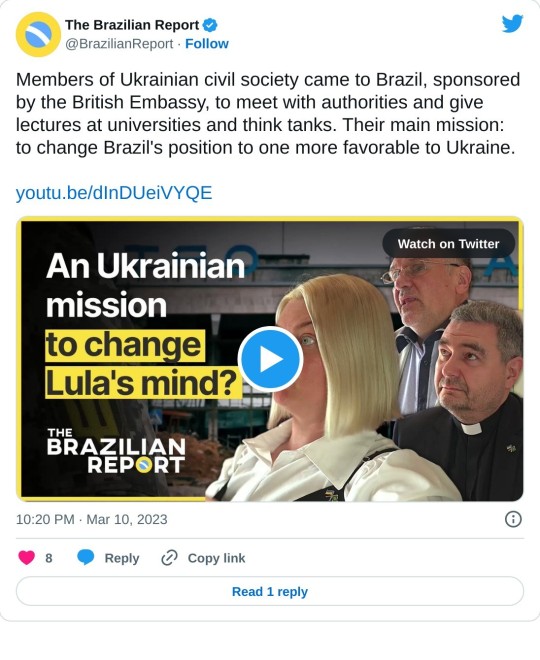
#brazil#ukraine#russia#politics#ukraine crisis#ukrainian politics#international politics#mod nise da silveira#image description in alt
339 notes
·
View notes
Text

#ukrainian catholic#ukrainian orthodox#ukrayna#ukrainian#ukraine#ukranian#ukrajina#slava ukraini#slava#ukrainian politics#ukrainian poetry#ukrainian painter#kyiv#kyiv ukraine#kevan rus#kyvan rus
10 notes
·
View notes
Text
The morning that Russian bombs started falling on Kyiv, Oksana Bruy woke up worried about her laptop. Bruy is president of the Ukrainian Library Association and, the night before, she hadn’t quite finished a presentation on the new plans for the Kyiv Polytechnic Library, so she had left her computer open at work. That morning, the street outside her house filled with the gunfire of Ukrainian militias executing Russian agents. Missile strikes drove her into an underground car park with her daughter, Anna, and her cat, Tom. A few days, later she crept back into the huge empty library, 15,000sqft once filled with the quiet murmurings of readers. As she grabbed her laptop, the air raid siren sounded and she rushed to her car.
Thanks to that computer, Bruy could work. She didn’t return to her office; instead, she fled west to Lviv. “In all that time, from the first day of the full-scale war, I did not stop working,” she says. The library’s IT specialist lived in the neighbourhood. He kept the servers running and the employees connected. “So there was not a single day’s break in the work of the Kyiv Polytechnical Library, all this time, from 24 February.” The Russians have not shut her down. Oksana Bruy is winning her battle in the Ukrainian war. The libraries are open.
The battles of the 21st century are hybrid wars fought on any and all fronts: military, economic, political, technological, informational, cultural. Often ignored, or relegated to marginal status, the cultural front is nonetheless foundational. The wars of this century are wars over meaning. As American forces learned in Iraq and Afghanistan, if you lose on the cultural front, military and economic dominance swiftly erode. The terrible battles for Kyiv and Kharkiv, the destruction of Ukraine’s civilian infrastructure, Europe’s struggle to heat and feed itself this winter, spiralling inflation, the brutal material horrors of the struggle, might make any cultural reading of the conflict seem fantastical or glib. But at its core, and from its origin, this Ukrainian conflict has been a war over language and identity. And Ukraine’s libraries are the key.
#current events#books#libraries#history#politics#russian politics#ukrainian politics#sociology#culture#languages#russo-ukrainian war#2022 russian invasion of ukraine#ukraine#russia#ukrainian
56 notes
·
View notes
Text
🇺🇦🇬🇧 🤡 🚨
DAVYD ARAKHAMIA CONFIRMS RUSSIAN PRESIDENT'S CLAIM THAT BORIS JOHNSON ENDED DEAL BETWEEN RUSSIA AND UKRAINE
Davyd Arakhamia, a leader in Zelensky's Servant of the People's Party in Ukraine, confirmed in an interview with Ukrainian media that the narrative that Russian President Vladimir Putin has been consistently pushing is in fact correct.
Arakhamia said in the interview that a deal had been worked out between the Ukrainian leadership and the Russian authorities in April of 2022, shortly after the start of Russia's Special Military Operation.
That deal, which called for a neutral Ukraine, had been accepted by Kiev, and the Ukrainian leadership had begun reviewing the details of the agreement when U.K. Prime Minister Boris Johnson rushed to Kiev to order the Ukrainians not to sign onto the deal with the Russians, but instead to fight them in a war, confident that the West could provide enough training and weapons to defeat the Russian Federation on a modern battlefield.
That story has been repeatedly told by the Russian President to the media, as have other Russian officials, but until now, Western leaders like Joe Biden, Boris Johnson and Rishi Sunak denied the claim, calling it "Russian propaganda".
Now, Davyd Arakhamia has accepted this version of events, confirming for the media the arrival of Boris Johnson to Ukraine, telling the reporter, "they [the Russians] were ready to end the war."
"If we accepted neutrality, like Finland once did, and we would make a commitment that we will not join NATO," Arakhamia said, adding that "when we returned from Instanbul, Boris Johnson came to Kiev and said that we will not sign anything with them at all and let's just go to war. As soon as we call them to sit down and negotiate, they [the Russians] will form a delegation the next day waiting for us."
This not only confirms the Russian President's version of events, it also confirms the West's commitment to war, and its commitment to damaging the Russian military and economy through any of the most destructive means possible.
#source
@WorkerSolidarityNews
#ukraine#boris johnson#uk#russia#special military operation#war in ukraine#ukraine war#ukraine news#ukrainian politics#armed forces of ukraine#russian armed forces#vladimir putin#davyd arakhamia#us news#uk news#ukrainian media#war#eastern europe#europe#europe news#european news#politics#news#geopolitics#world news#global news#international news#breaking news#current events#war news
17 notes
·
View notes
Text
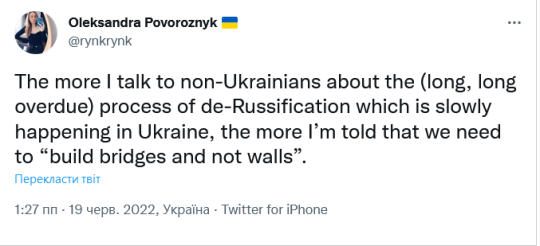
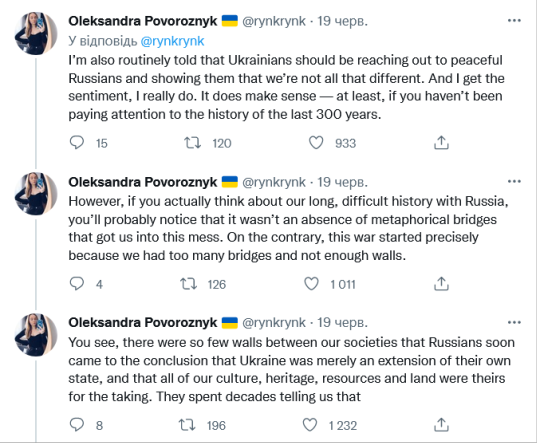

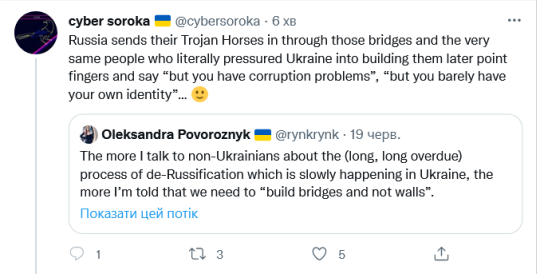

#україна#ukraine#war in ukraine#russia#russian invasion of ukraine#russo ukrainian war#politics#war#ukrainian politics#decolonisation
306 notes
·
View notes
Text

Beautiful.
50 notes
·
View notes
Text
⭐️ Friday Vote Battle (Round 54) ⭐️

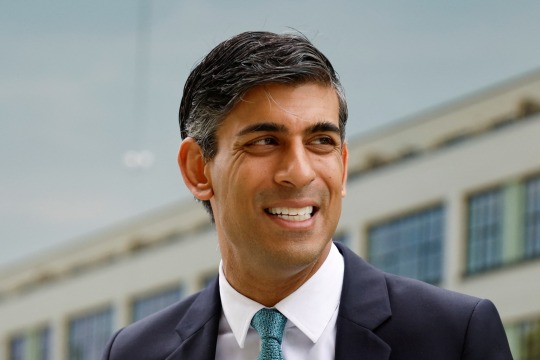
#fandom#fandom questions#character quiz#quizzes#rounds#politicians#politics#lolitics#ukrainian politics#british politics#volodymyr zelensky#rishi sunak#servant of the people#sluga naroda#sluha narodu#kvartal 95#world leaders
3 notes
·
View notes
Text


.
.
Interesting. Poland and Portugal are more anti-Russian than Ukraine.
#poland#portugal#ukraine#ukraine russia#russia#russia ukraine war#ukrainian#slavic#polish politics#polish#polska#poland russia#poland ukraine#europe#european union#kyiv#lviv#refugees#ukrainian politics#ukrainian refugees
69 notes
·
View notes
Text
Stand with Ukraine 🇺🇦
Ukrainian politics
#war in ukraine#stand with ukraine#ukraine#ukrainians#ukrainian politics#war#save ukraine#motherland#glory to ukraine#glory to ukrainians
58 notes
·
View notes
Text
And this was his answer: Help us fight them here, help us defeat them here, and you won’t have to fight them anywhere else. Help us preserve some kind of open, normal society, using our soldiers and not your soldiers. That will help you preserve your open, normal society, and that of others too. Help Ukraine fight Russia now so that no one else has to fight Russia later, and so that harder and more painful choices don’t have to be made down the line.
— Zelensky Has an Answer for DeSantis
#anne applebaum#volodomyr zelenskyy#current events#warfare#politics#russian politics#ukrainian politics#international relations#russo-ukrainian war#2022 russian invasion of ukraine#russia#ukraine#ron desantis
83 notes
·
View notes
Text
commentators: Servant of the People is a deeply important program, one which showcases President Volodymyr Zelenskyy's magnificent leadership skills. Slava Ukrayini.
Servant of the People: Vasyl's hanging around the office in his underpants
#in case anyone thinks I'm strawmanning the commentary: that's literally what they run during ad breaks for the show on Vision TV#don't get me wrong: SotP is an incredibly well-written and moving series#but the way commentators in the Anglosphere talk about it... you'd forget it's a comedy#(an incredibly funny comedy)#I'm sure there's some greater point to be made here#but I'm tired#Servant of the People#politics#Ukrainian politics#Ukraine#Volodymyr Zelenskyy
47 notes
·
View notes
Text
Brazilian envoy meeting Ukrainian officials to devise a peace plan

Ukrainian diplomat Andrij Melnik Wednesday said Brazil can “play an important role” in stopping the war with Russia ahead of his meeting with President Luiz Inácio Lula da Silva's envoy Celso Amorim in Kyiv.
“Brazil can play an important role in stopping Russian aggression and reaching a just and lasting peace,” said Melnikm, the first of the Ukrainian officials Amorim met before meeting with President Volodymyr Zelensky.
“Happy to meet the chief advisor to Brazilian President Lula da Silva,” the Ukrainian diplomat, until recently Ukraine's ambassador to Berlin, wrote on his Facebook account.
Former Foreign Minister Amorim visited Moscow in April, where he met with President Vladimir Putin, as part of Lula's plan to make Brazil a key player in finding a solution to the conflict.
Continue reading.
#brazil#politics#brazilian politics#ukraine#ukrainian politics#ukraine crisis#foreign policy#Andrij Melnik#celso amorim#international politics#mod nise da silveira#image description in alt
18 notes
·
View notes
Text
Russian forces in full retreat from Kharkiv as Ukraine seeks to turn tide of war – POLITICO
Russian forces in full retreat from Kharkiv as Ukraine seeks to turn tide of war – POLITICO
Russia’s front line troops have fled their positions in Ukraine’s northeastern Kharkiv region as Ukrainian soldiers on Saturday forged ahead with a blitzkrieg to liberate occupied territories.
Over the past days, Ukrainian troops have made unexpectedly rapid gains in a counteroffensive to the east of the city of Kharkiv, attacking key strategic towns such as Balakliia, Kupiansk and Izyum, which…
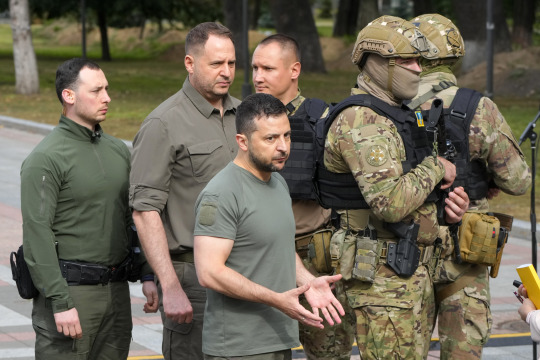
View On WordPress
#Defense#forces#FULL#Kharkiv#POLITICO#retreat#Russia#Russian#Russian politics#seeks#Tide#turn#Ukraine#Ukrainian politics#Vladimir Putin#War#war in Ukraine
9 notes
·
View notes
Text
“The history of all coalitions is a tale of the reciprocal complaints of allies.” Thus said Winston Churchill, who knew whereof he spoke. This summer of discontent has been one punctuated by complaints: from Ukrainian officials desperate for weapons, and from Western diplomats and soldiers who think that the Ukrainians are ungrateful for the tanks, training, and other goods they have received.
Most of the Western sputtering occurred in and around last month’s NATO summit in Vilnius, Lithuania, through anonymous leaks and public grumbles. Indeed, according to one report, the U.S. administration was so miffed by Volodymyr Zelensky’s complaint about the slowness of the NATO accession process that some advocated watering down language about NATO membership for Kyiv. Withdrawing the word invitation from the communiqué would, in their view, be a suitable punishment for a mean tweet.
One gasps at the petulance on display here, as at otherwise staunch British Defense Minister Ben Wallace’s snap about Ukraine treating its Western suppliers as a kind of Amazon of weaponry.
Peevishness about allies is a common and understandable mood that all senior diplomats and national-security officials eventually experience. A monologue sooner or later goes on in their heads that sounds something like this:
I’m lucky if I get a decent night’s sleep once a week. I leave work before my kids are up and get back after they’re asleep, six and sometimes seven days a week. I stress eat and can’t take a vacation without being called back to the office. Meanwhile, everybody thinks that the [insert ally’s name] are a bunch of victims or heroes, when they are, in fact, manipulative, ungrateful little bastards who don’t have a clue what I am doing to save them from [name a rival official, nation, or department of government]. And their American sympathizers are a bunch of nasty dupes who are just as ignorant, but with fewer excuses.
The adult thing to do in such cases is to get in a workout, complain to one’s loving spouse, or commit these thoughts to a diary for the delectation of historians who will read too much into what are, in sober hindsight, mere tantrums. To mention them to the press, or, even worse, act upon them is unfair and irresponsible.
Such eruptions occur when officials let their irritations suppress their empathy. At the moment of peak whine, they forget what it means to have a fifth of your country occupied, or to know that a far bigger country is attempting, every night, to smash your power plants, blockade your ports, and destroy your crops. They are not holding in the forefront of their minds obliterated towns and mass graves. They do not know what it is to welcome back exchanged prisoners of war who have been castrated. Or to mourn old men and women murdered, or younger men and women tortured and raped. Or to worry frantically about thousands of children kidnapped. They forget that while a Western official’s sleep may be interrupted by a phone call or an alarm clock, a Ukrainian official’s sleep is more likely (and more often) interrupted by a siren or the crash of a missile slamming into an apartment block.
Ukrainian officials are thankful. Analysis of their speeches reveals plenty of expressions of gratitude. But they are also insistent and vociferous in their cries for help. They would be both inhuman and derelict in their duty if they were to be anything else. Hopefully, after a whiskey (or two) on the plane back to Washington or London, Western officials simmer down and return to some level of maturity in understanding their beleaguered ally.
Unfortunately, the impulse behind the whining can also manifest in subtler, but no less pernicious, forms. Much of the public discussion of Ukraine reveals a tendency to patronize that country and others that escaped Russian rule. As Toomas Ilves, a former president of Estonia, acidly observed, “When I was at university in the mid-1970s, no one referred to Germany as ‘the former Third Reich.’ And yet today, more than 30 years after the fall of the Berlin Wall, we keep on being referred to as ‘former Soviet bloc countries.’” Tropes about Ukrainian corruption abound, not without reason—but one may also legitimately ask why so many members of Congress enter the House or Senate with modest means and leave as multimillionaires, or why the children of U.S. presidents make fortunes off foreign countries, or, for that matter, why building in New York City is so infernally expensive.
The latest, richest example of Western condescension came in a report by German military intelligence that complains that although the Ukrainians are good students in their training courses, they are not following Western doctrine and, worse, are promoting officers on the basis of combat experience rather than theoretical knowledge. Similar, if less cutting, views have leaked out of the Pentagon.
Criticism by the German military of any country’s combat performance may be taken with a grain of salt. After all, the Bundeswehr has not seen serious combat in nearly eight decades. In Afghanistan, Germany was notorious for having considerably fewer than 10 percent of its thousands of in-country troops outside the wire of its forward operating bases at any time. One might further observe that when, long ago, the German army did fight wars, it, too, tended to promote experienced and successful combat leaders, as wartime armies usually do.
American complaints about the pace of Ukraine’s counteroffensive and its failure to achieve rapid breakthroughs are similarly misplaced. The Ukrainians indeed received a diverse array of tanks and armored vehicles, but they have far less mine-clearing equipment than they need. They tried doing it our way—attempting to pierce dense Russian defenses and break out into open territory—and paid a price. After 10 days they decided to take a different approach, more careful and incremental, and better suited to their own capabilities (particularly their precision long-range weapons) and the challenge they faced. That is, by historical standards, fast adaptation. By contrast, the United States Army took a good four years to develop an operational approach to counterinsurgency in Iraq that yielded success in defeating the remnants of the Baathist regime and al-Qaeda-oriented terrorists.
A besetting sin of big militaries, particularly America’s, is to think that their way is either the best way or the only way. As a result of this assumption, the United States builds inferior, mirror-image militaries in smaller allies facing insurgency or external threat. These forces tend to fail because they are unsuited to their environment or simply lack the resources that the U.S. military possesses in plenty. The Vietnamese and, later, the Afghan armies are good examples of this tendency—and Washington’s postwar bad-mouthing of its slaughtered clients, rather than critical self-examination of what it set them up for, is reprehensible.
The Ukrainians are now fighting a slow, patient war in which they are dismantling Russian artillery, ammunition depots, and command posts without weapons such as American ATACMS and German Taurus missiles that would make this sensible approach faster and more effective. They know far more about fighting Russians than anyone in any Western military knows, and they are experiencing a combat environment that no Western military has encountered since World War II. Modesty, never an American strong suit, is in order.
One way to increase understanding among Ukraine’s friends would be to put substantial military legations in Kyiv. American colonels and generals do not have to go on patrols or storm tree lines, but they would benefit from continuous, in-country, face-to-face contact with their Ukrainian counterparts. They would be able to communicate realistic assessments of the fighting and of Ukrainian tactical and operational requirements. They would also convey to Ukraine a reassurance that videoconferences cannot, and perhaps bring a bit of humility to deliberations in Washington.
Such an effort entails risks, but that’s what soldiers sign up for. Maintaining a continuous physical presence in Ukraine with a high-level military mission, supplemented by frequent visits from the head of the U.S. European Command and other senior leaders, would be invaluable in making the judgments that could help Ukraine defeat Russia, regain its territory, and win this war. And winning, not whining, is what it’s all about.
#current events#politics#ukrainian politics#american politics#warfare#diplomacy#russo-ukrainian war#2022 russian invasion of ukraine#ukraine#usa
9 notes
·
View notes